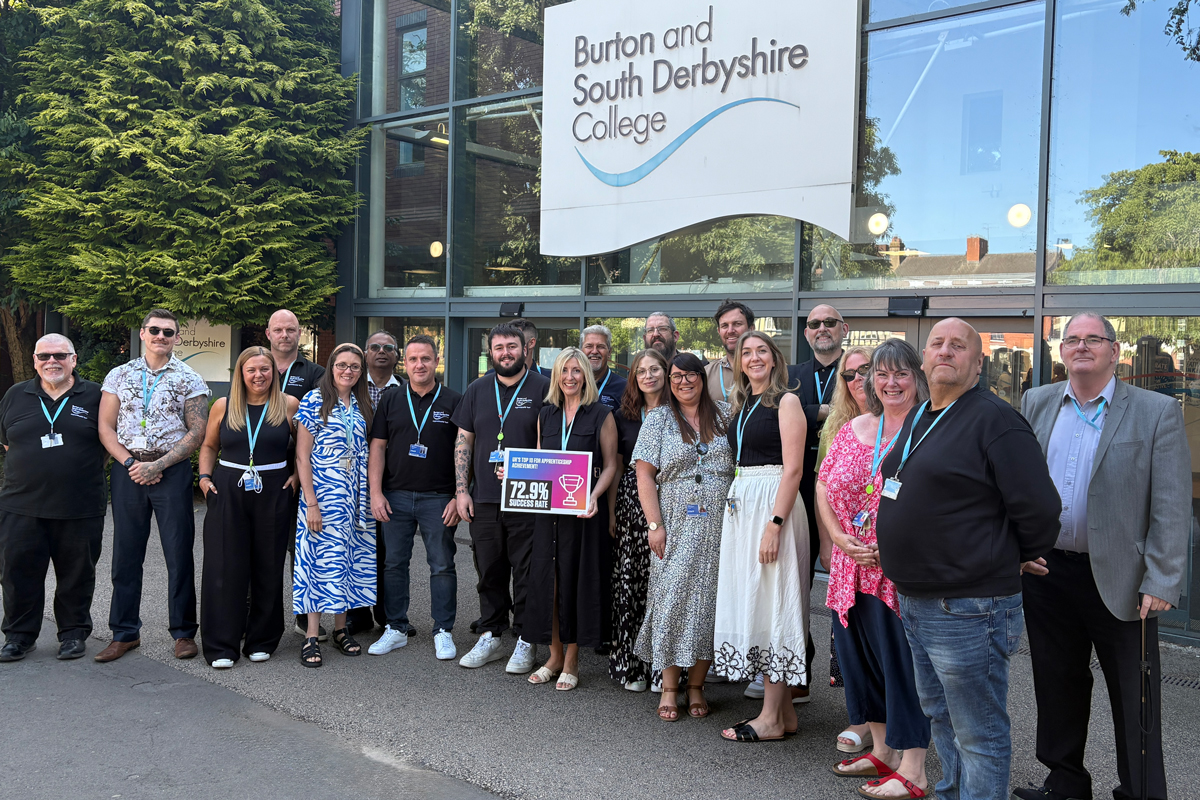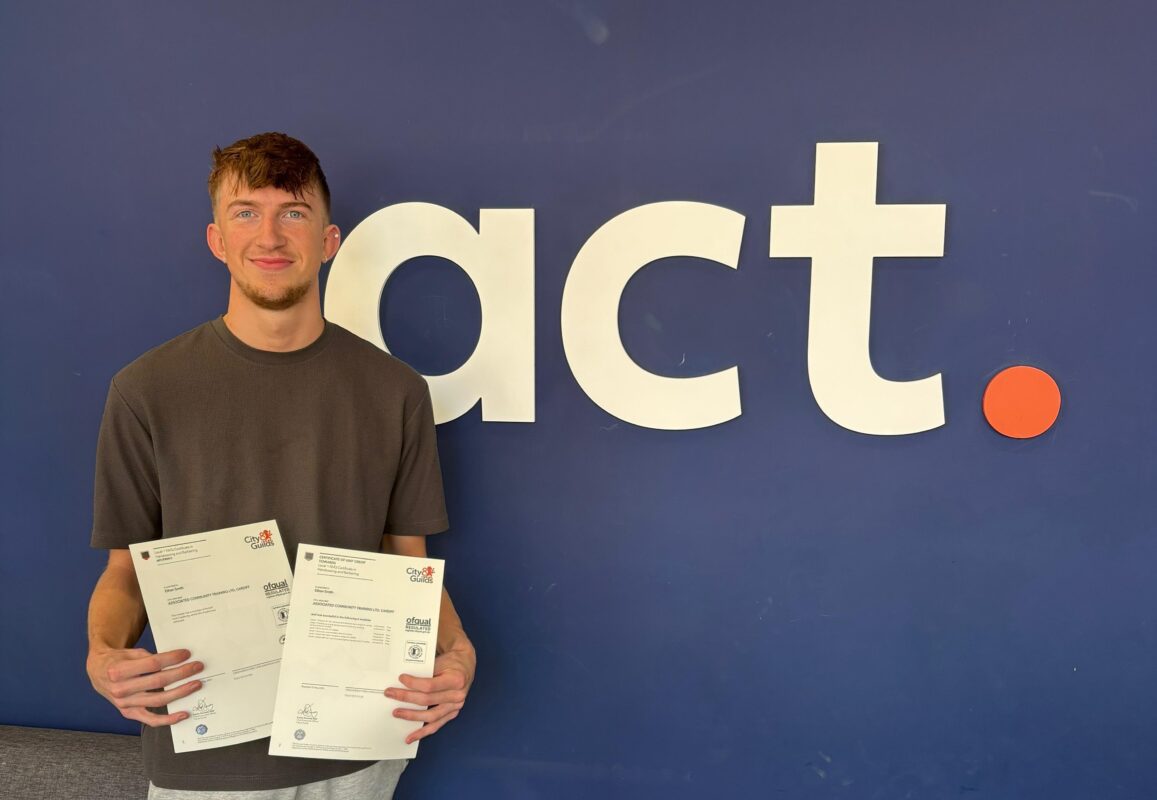What do apprentices tell us they need and how can we support more?

While apprenticeships are known for the benefits they bring to individuals, employers and the economy, apprentices tell us they want more support to achieve the best outcome. In this article, we look at exactly what they need and how we can do more to support them.
Introduction
We know that apprenticeships play a crucial role in work-based learning. They provide learners with choice and opportunity to progress, help employers with recruiting and retaining diverse talent for their workforce and boost our economy through increased productivity. So, given the benefits, why do many apprentices leave their programmes before they’ve completed them, and what more can we do to support them to stay?
In its report Apprenticeship Outcomes and Destinations, The St Martin’s Group evidenced that while there is benefit from participating in apprenticeships, completed apprentices are statistically more likely to achieve better outcomes than those who leave their programmes early. And while we anticipate that completion rates will increase from their previous position when the Department for Education publishes 2022/23 data next month, a follow-up study this year by The St Martin’s Group of over 800 apprentice employers, shows that only 1 in 3 reports completion rates of over 75%. So there’s still a way to go.
Challenges for Apprentices
There are various reasons why apprentices don’t complete ranging from a mismatch of expectations to their relationship with their line manager to an extended duration or poor training provision. And of course, an apprenticeship is a job, and people leave jobs. Plus, there’s a large number of apprentices who leave for positive destinations such as a new role or promotion because of the skills they’ve gained on their apprenticeship.
However, one of the biggest factors in an apprentice’s decision to leave their programme is lack of support. Many feedback that balancing workload and their apprenticeship is an issue and they need more time from their employer for off-the-job training and study. Employers in The St Martin’s Group study also stated this as one of the biggest barriers to completion, finding it challenging to provide what’s needed due to operational and business pressures.
Some apprentices need more pastoral support, and others more financial support with direct costs such as transport, especially younger apprentices and those at entry level.
At the Association of Apprentices, we have 12,000 apprentice members. We provide additional support by connecting apprentices with their peers and offering a community to share experiences and learning. Our members provide valuable insight into things that matter the most, and recently we surveyed them to find out what support they value from their employer and provider and what they want more of.
The top things apprentices said they think their employers and providers excel in are providing an inclusive environment, flexibility and resources but need improvement in providing networking opportunities, mentorship, communication and recognition of their achievements. This is consistent with previous feedback from our community and findings from The St Martin’s Group research, which show that having access to workplace mentors and peer networks would encourage more apprentices to remain on their apprenticeships, and better/more/earlier communication is vital for a good experience.
What do we need to do to support?
For me, first and foremost we should look at the data that sits behind non-completers and continue to collate and monitor it regularly. And we should talk to apprentices about it. Different groups of individuals need different support – one size does not fit all. Unfortunately, the current ILR field for recording why apprentices leave doesn’t help – the biggest category used is ‘other’ which helps no one! The ILR data fields need to reflect apprenticeships and the context in which we are working now. Having said that I know some great training providers who are monitoring their data closely and can identify those at risk of leaving, providing early intervention where it’s needed the most.
We need to also start with the end in mind. That’s straight from apprentice feedback. Members have told us they value gaining a qualification, getting ahead and employability, so knowing they can achieve this at the end is a really important component of their onboarding and of course, needs to be reinforced throughout their journey.
The Association of Apprentices is helping to play its part in this. We recently announced a partnership with the Chartered Institution of Further Education that will see apprentices recognised on completion for the skills that they gain from this unique mode of learning and giving them eligibility for post-nominals. We know this will be game-changing for apprentice completions and progression.
Just as apprentices need support to complete, both employers and providers also need support; from financial help to clearer communication and guidance, to more flexibility and less complexity in the system. There’s a need to make the system work better for all parties involved in the delivery of apprenticeships.
We also need to shift from the focus on apprenticeship to focus on quality and outcomes. And to do this we need to shout louder about the return on apprenticeship investment. In its survey, the St Martin’s Group found that employers unanimously value completions, not just as an end in itself; but as a means to achieving wider business benefits. Their view of success was wider than the current measure of achievement and included outcomes such as progression and retention. If we want employers to invest in supporting apprentices to achieve the best outcomes, we need a narrative that resonates with them.
By Emily Rock (Austin), CEO Association of Apprentice and Engagement Director, The St Martin’s Group
FE News on the go
Welcome to FE News on the Go, the podcast that delivers exclusive articles from the world of further education straight to your ears.
We are experimenting with Artificial Intelligence to make our exclusive articles even more accessible while also automating the process for our team of project managers.
In each episode, our thought leaders and sector influencers will delve into the most pressing issues facing the FE.











Responses